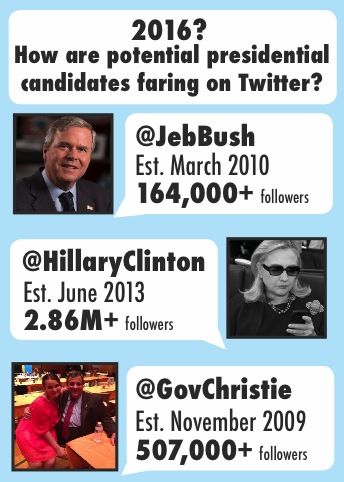Editorial: Twitter turns key to political office

February 25, 2015
If your Twitter gets no buzz, consider our vote up in smoke.
Pennsylvania Gov. Tom Wolf took to his keyboard on Tuesday for an hourlong town hall, receiving and answering questions from Twitter users with hashtag #PAgov about topics like education funding and the future of coal. Though the talk produced some canned answers, like that Wolf’s goals are “jobs that pay, schools that teach & gov’t that works [sic],” it was a step in modernizing state government.
With 2016 approaching, more politicians in or vying for office should follow Wolf’s lead and better connect with the electorate on Twitter. Traditional campaign tactics like face-to-face conversations, phone calls or TV commercials are not enough to engage with — and capture the votes of — our generation. Getting acclimated with social media can build your brand with minimal time commitment..
We’re living in a mass information age when a lack of extensive knowledge on your platforms is inexcusable. Are you planning heavy tax reforms? Then we hope you’re following news sources and experts covering economics and finance. Are you particularly keen on social progress? Then, we hope your feed reflects the proliferation of groups and articles sharing personal challenges and disparities.
We learned in 2008 that politicians’ savviness on social media can be pivotal for their campaign. By giving the public an accessible and clear portrait of themselves and their goals, politicians can better inform voters before Election Day.
Locally, the city’s current mayor, Bill Peduto, has bridged the gap between his desk downtown and our eyes with an active page and its more than 28 thousand followers. The account frequently posts photographs of Peduto at events across the city or local news coverage.
Frontrunners in 2016 are, too, learning that before they capture our vote, they can start with our retweet.
Hillary Clinton’s tweets over her past year and a half in the Twittersphere have been sparse, though she held an #AskHillary last summer, reaching out to her more than 2.8 million followers.
Jeb Bush, R-Fla., has been relatively active, tweeting a variety of topics ranging from his thoughts on the keystone pipeline to a picture of himself and his wife in celebration of their 41st wedding anniversary.
Chris Christie, R-N.J., tweets regularly, focusing many of his posts on his agenda as New Jersey governor. Bush and Christie are two of the strongest potential moderate Republicans candidates in 2016. Perhaps Twitter will decide who wins, — or, at least, who grabs the youth vote.
Showing social media prowess isn’t just digital fanfare, either.
U.S. Sen. Cory Booker, D-N.J., showed politicians can use the social platform to connect with constituents just like we connect with friends. When Booker was mayor of Newark, N.J., he gained national recognition for keeping up to date with his community through the platform, and going out in the field to help his constituents by shoveling snow or rescuing dogs from freezing temperatures.
We already witnessed the power of social media with Barack Obama’s 2008 victory. Obama’s win, in the race dubbed the “Internet Election,” was attributed much to young voters. He did it again entering his second term, snatching 60 percent of the 18-to-24 vote, while Representative Mitt Romney took 37 percent, according to civicyouth.org.
Simply cranking out tweets isn’t always rosy, either, and can lift the curtain on a window that politicians want to keep private.
Our own former mayor Luke Ravenstahl inadvertently made the case for pushing politicians to use Twitter. His social media push worked for voters and against his office, and exposed his habit of lying about being at the office when he was really at a posh country club.
Politicians shouldn’t forgo boots on the ground tactics, but in order to increase transparency and identify with voters, they must chase the answer at the end of their fingertips.
Terms like hashtag or search engine optimization shouldn’t be a different language — because they could be your ticket to office. Before our hair grays, why not show us your best 140-character pitch?


